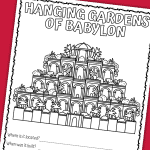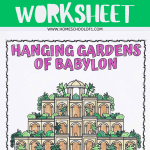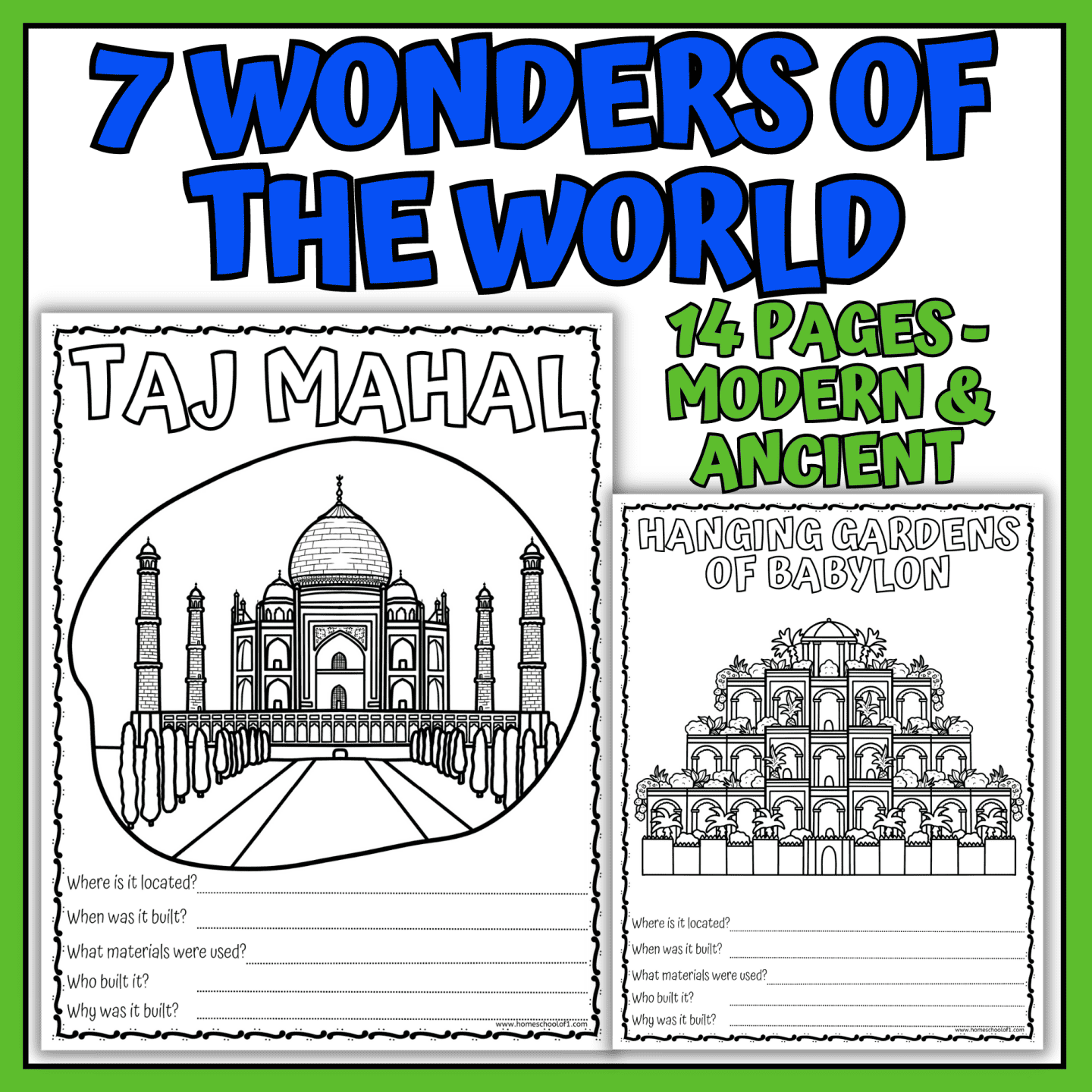Hanging Gardens of Babylon Worksheet & Fun Facts for Kids
A Hanging Gardens of Babylon worksheet is a great way to help kids explore one of the most mysterious wonders of the ancient world.
This free geography printable invites learners to discover how the legendary gardens may have looked, why they were built, and how they became part of ancient Mesopotamian history.
Perfect for history or geography lessons, it offers a hands-on approach to learning about ancient architecture, innovation, and culture.
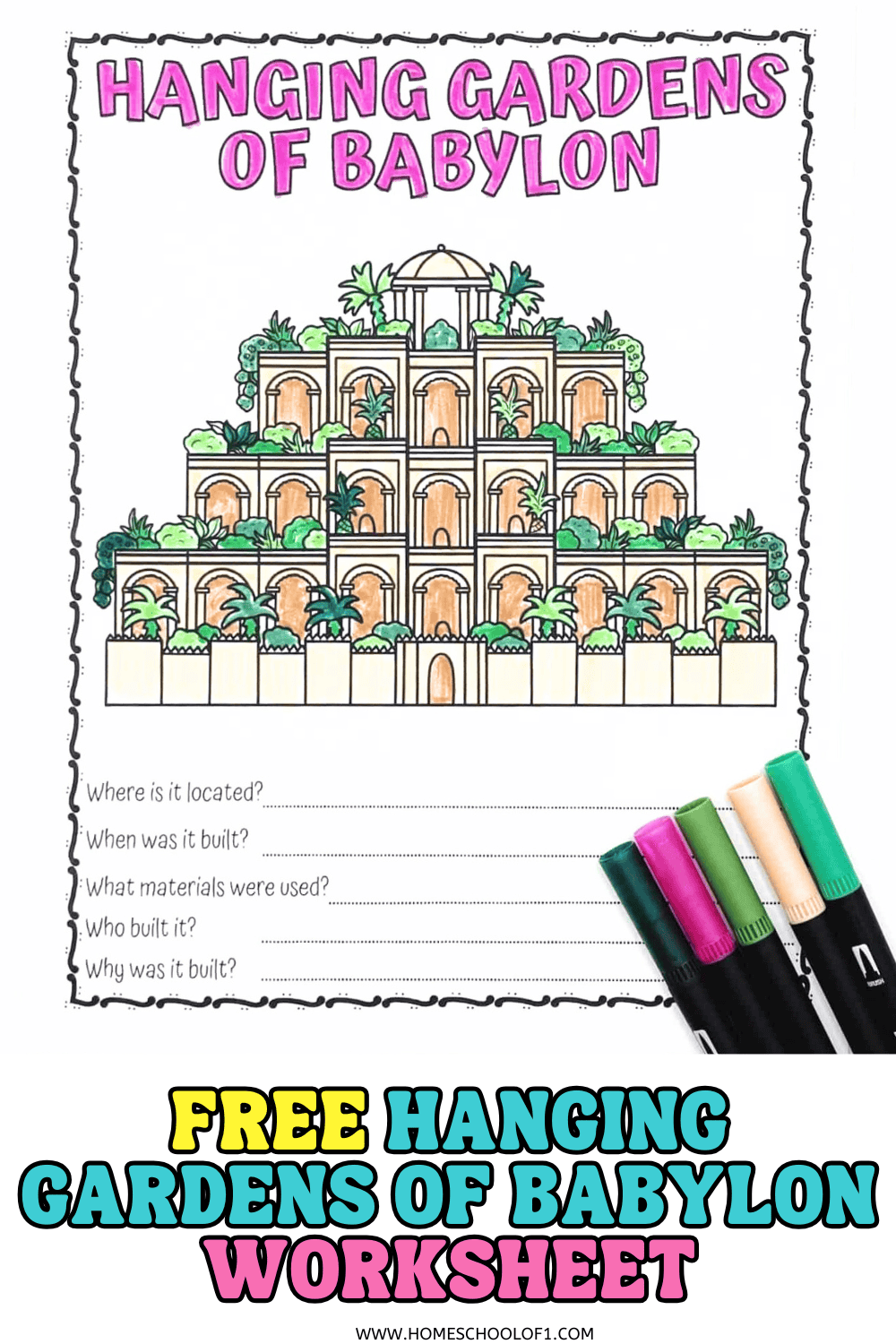
**This post may contain affiliate links. As an Amazon Associate and a participant in other affiliate programs, I earn a commission on qualifying purchases.**
Interesting Hanging Gardens of Babylon facts for kids
- The Hanging Gardens of Babylon were considered one of the Seven Wonders of the Ancient World. They were built in the ancient city of Babylon, which is now part of modern-day Iraq.
- The gardens were built by King Nebuchadnezzar II for his wife, Queen Amytis, who missed the beautiful green mountains of her homeland.
- Contrary to what the name suggests, the gardens were not actually “hanging” in the air. They were terraced gardens built on top of a huge structure to resemble mountain slopes.
- The gardens were designed to have beautiful cascading plants, trees, and flowers. They had water channels and irrigation systems that kept the gardens lush and green.
- The gardens were so magnificent that they were believed to have been seen from miles away, giving the illusion that they were floating in the air.
- The gardens were not only a stunning sight but also served a practical purpose. They helped keep the city cool by providing shade and reducing the heat.
- It is believed that the gardens were destroyed by an earthquake in the 2nd century BCE. Today, archaeologists are still trying to discover the exact location and remains of the gardens.
- The Hanging Gardens of Babylon have inspired many stories, including the legend of the Tower of Babel. According to the legend, the gardens were part of King Nebuchadnezzar’s grand palace complex, which included the famous tower.
- The Hanging Gardens of Babylon have influenced garden designs throughout history, and even today, the idea of a beautiful, elevated garden is still captivating.
- Although the Hanging Gardens of Babylon are no longer standing, they continue to capture our imagination as a symbol of beauty, innovation, and the power of nature.
Keep learning with free Asia geography worksheets covering countries, landmarks, and cultural facts.
Hanging Gardens of Babylon research
Kids can use this worksheet to answer simple research questions about the Hanging Gardens of Babylon, including who built it, where it was located, and what made it so unique.
These are the questions included on the worksheet:
Where were they located?
The Hanging Gardens of Babylon were located in the ancient city of Babylon, which is now part of modern-day Iraq.
When were they built?
The exact date of when the Hanging Gardens of Babylon were built is uncertain. It is believed to have been constructed around the 6th century BCE, during the reign of King Nebuchadnezzar II.
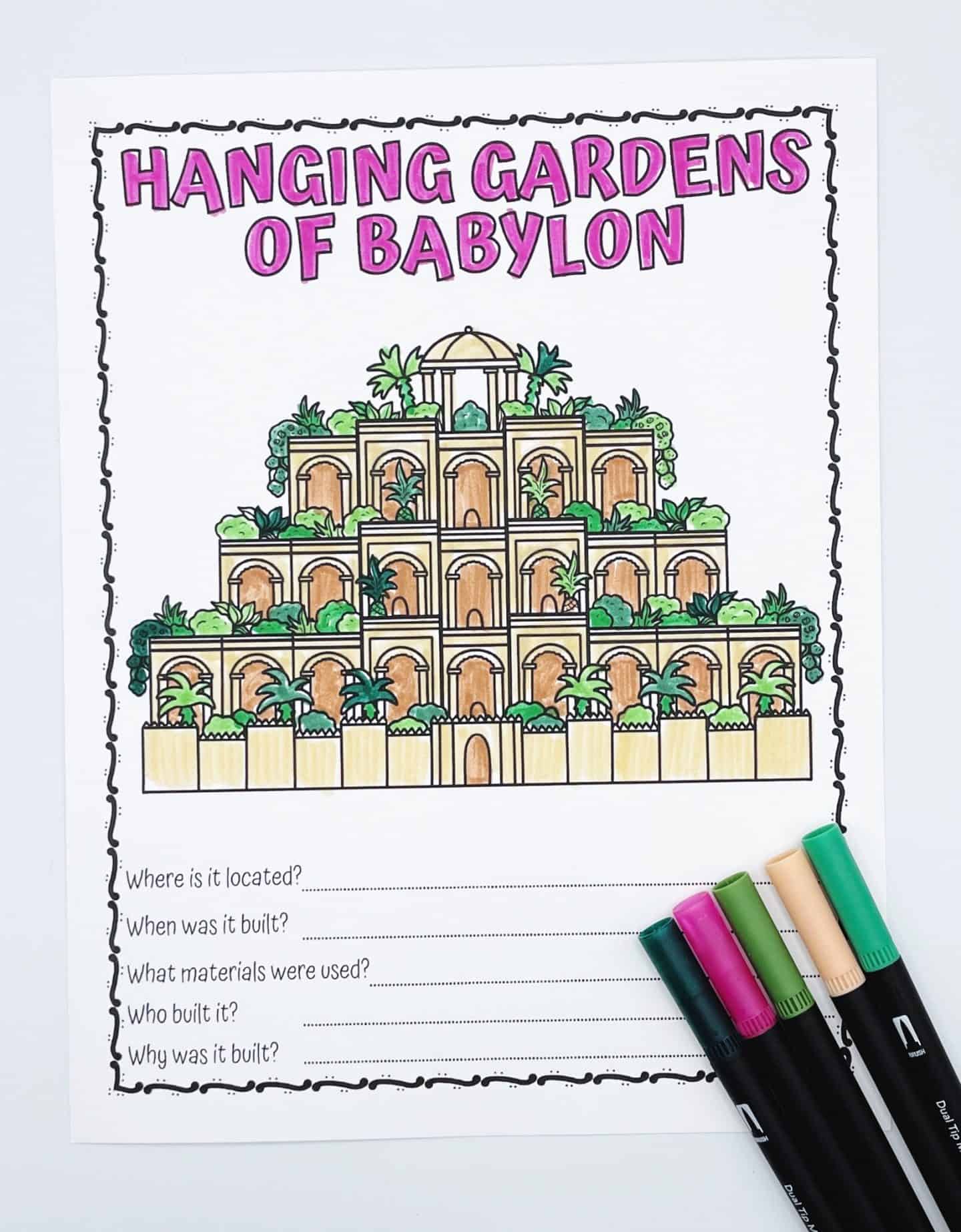
What materials were used in making them?
The materials used in making the Hanging Gardens of Babylon included stone, bricks, and timber. The terraces were supported by a complex system of arches and columns.
Who built them?
The Hanging Gardens of Babylon were built by King Nebuchadnezzar II, the ruler of the Neo-Babylonian Empire, as a gift to his wife, Queen Amytis.
The queen missed the green mountains of her homeland, and the gardens were constructed to replicate that beauty.
Why were they built?
The primary reason for building the Hanging Gardens of Babylon was to please Queen Amytis and provide her with a sense of home and comfort.
The gardens were meant to be a breathtaking and extravagant display of beauty and luxury, showcasing the power and wealth of the Babylonian empire.
Please note that some details about the Hanging Gardens of Babylon are uncertain due to the lack of extensive archaeological evidence, and historical accounts may vary.
What happened to the Hanging Gardens of Babylon?
The fate of the Hanging Gardens of Babylon remains a mystery. There are different theories regarding what happened to them:
- One theory suggests that the gardens were destroyed by an earthquake that occurred in the 2nd century BCE. The earthquake is believed to have caused significant damage to the structures, leading to the eventual demise of the gardens.
- Over time, the gardens may have suffered from neglect and gradual erosion. Without proper maintenance, the structures and the lush greenery may have deteriorated, resulting in their eventual disappearance.
- It is important to note that while the Hanging Gardens of Babylon are mentioned in various ancient texts and historical accounts, no physical remains of the gardens have been conclusively discovered. Some historians propose that the gardens may have been exaggerated or misinterpreted in ancient writings.
Due to the lack of concrete archaeological evidence, the exact fate and current state of the Hanging Gardens of Babylon are unknown. Nevertheless, the gardens continue to captivate the imagination and remain a symbol of beauty and wonder from the ancient world.
Need to print later? Add this to your Pinterest board or share it on Facebook. You’ll have it handy whenever you’re ready to use it!
Get the free Hanging Gardens of Babylon worksheet here!
If you’re learning about the wonders of the world, you can get all 14 worksheets—featuring both ancient and modern wonders—for a small fee.
If you don’t see the form below, click here to get the free Hanging Gardens of Babylon coloring page.
Last Updated on 23 October 2025 by Clare Brown

